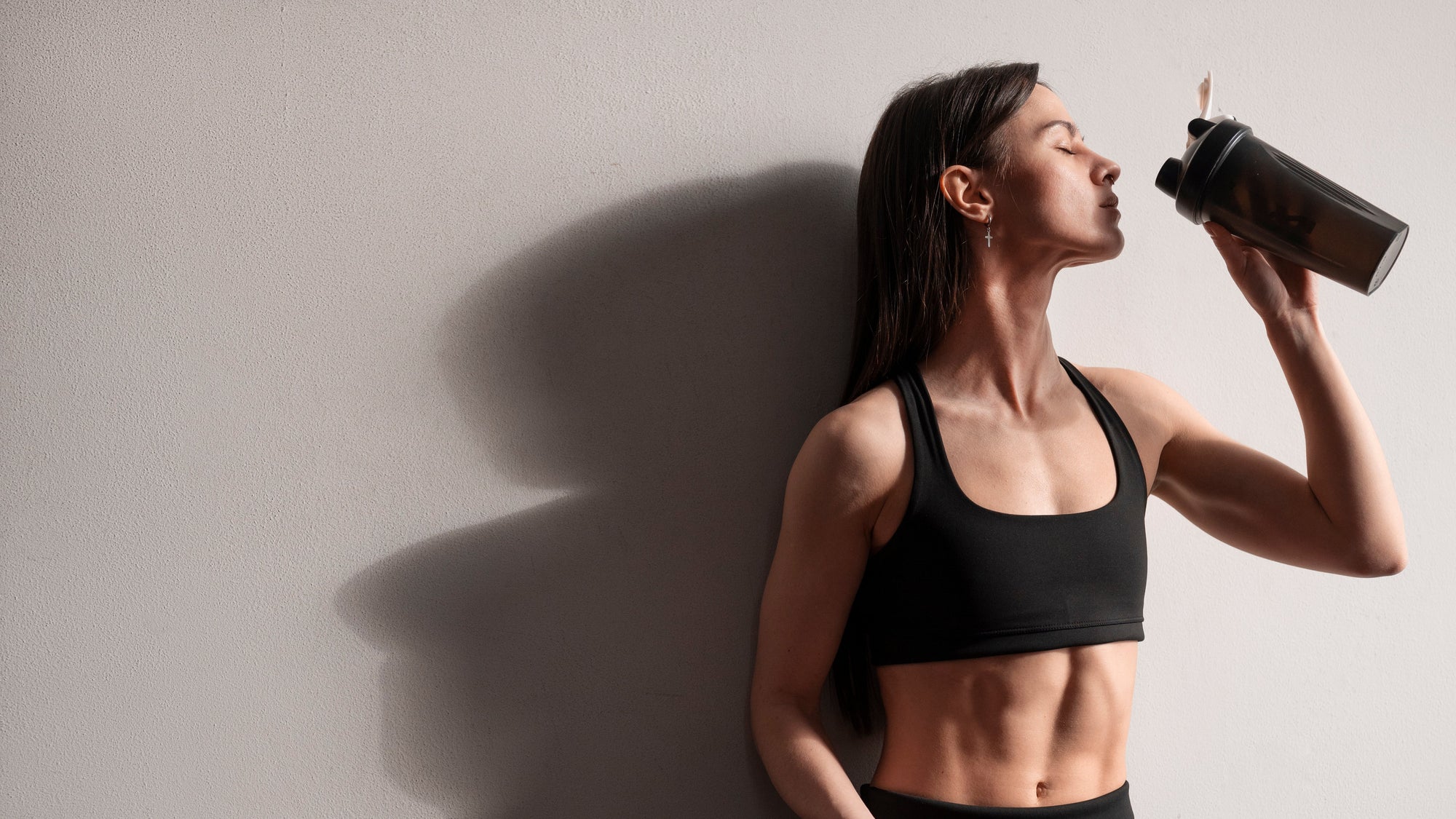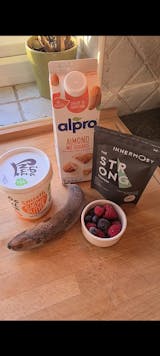If you said “creatine” ten years ago, most people would’ve pictured a guy at the gym, slamming a protein shake the size of a fire extinguisher.
Fast forward to today, and creatine is gaining more traction than ever – but not for the reasons you'd expect.
It’s not just about size or strength anymore. It’s about mental sharpness. Recovery. Longevity. Hormonal support. Healthy ageing.
And while it’s long been the most studied supplement in sports nutrition, new research is changing how we think about it – and who it’s for.
Let’s break it down.
First: What actually is Creatine?
Creatine is a naturally occurring compound your body produces (and you get in small amounts from red meat and fish). It’s stored mostly in your muscles and brain, where it helps regenerate adenosine triphosphate (ATP) – your body’s main energy currency.
In plain English? It helps you produce energy faster and more efficiently. That’s why creatine’s been a staple for athletes and weightlifters for decades – because it enhances performance, power, and recovery.
But that’s just scratching the surface.
Reason 1: The science has evolved
The benefits of creatine aren’t limited to physical performance anymore.
In recent years, researchers have started to uncover its role in cognitive function, mental fatigue, and neuroprotection – especially under stress or during sleep deprivation.
A 2021 systematic review published in Nutrients found that creatine supplementation “may improve short-term memory and intelligence/reasoning” – particularly in people who are sleep-deprived, stressed, or ageing .
Another study in Psychopharmacology found that supplementing with creatine significantly improved working memory and information processing speed in healthy adults .
We're also seeing promising links between creatine and age-related cognitive decline. There’s emerging evidence suggesting it may support brain health in older adults – acting as a protective buffer against neurological degeneration .
In short: creatine is no longer just a “performance” supplement. It’s increasingly viewed as a daily health essential – especially for your brain.
Reason 2: Women are in – and rightly so
Historically, creatine marketing catered almost exclusively to men. The packaging was aggressive, the messaging all about muscle mass, and there was a persistent myth that creatine would cause bloating or bulkiness.
It’s no surprise women stayed away.
But now? That narrative is breaking down fast – and the science is doing the talking.
Studies show that creatine may be especially important for women – particularly through perimenopause, menopause, and beyond. Research published in Nutrients highlights that creatine supplementation can support muscle strength, bone density, and mood regulation in women during and after menopause .
It’s also been shown to help maintain lean muscle mass and support cognitive function during hormonal fluctuations – making it a powerful ally for long-term wellbeing.
And no, it won’t make you puffy. The “bloating” myth comes from a misunderstanding: creatine draws water into your muscle cells (where it belongs), which actually supports performance, hydration, and cell integrity.
This isn’t about bulking. It’s about feeling energised, strong, and supported in your body – no matter your life stage.
Reason 3: It’s not just for the gym anymore
The old creatine image was all about barbells and bench presses.
But modern life demands more than just gym gains. We want to feel good, stay sharp, move well, and perform in life – not just during workouts.
Creatine helps with all of it.
Whether you're training hard, working late, chasing your kids around, or trying to keep brain fog at bay – creatine supports energy production, improves recovery, and sharpens your thinking.
Even endurance athletes, office workers, and biohackers are getting in on the action. One study found that creatine enhanced oxygen consumption and reduced fatigue during long bouts of aerobic exercise .
Put simply: creatine helps you show up as the best version of yourself, wherever life takes you.
Reason 4: You’ve got options now
Here’s the good news – the supplement industry is finally catching up.
Gone are the days of industrial-sized tubs and confusing dosing instructions. At Innermost, we’ve reimagined creatine in a way that’s clean, purposeful, and fits into real life.
At innermost, you’ve got two simple options:
The Power Booster – our pure, pharmaceutical-grade creatine monohydrate. Zero additives. Just high-quality creatine in its most effective form.
The Strong Protein – our intelligent protein blend for strength and recovery, with creatine built-in alongside nootropics, anti-inflammatory ingredients, and functional adaptogens. One blend, multiple benefits.
Both options are designed for people who care about their health, performance, and clarity – not just their biceps.
FINAL THOUGHTS
Creatine isn’t new. But the way we understand it - and who it’s for - absolutely is.
It’s not just about muscle. It’s about mood. Memory. Mental sharpness. Movement. And supporting your body through every season of life.
Whether you’re lifting, learning, leading, or just looking to feel a little more like yourself again - creatine could be one of the smartest additions to your daily routine.
























